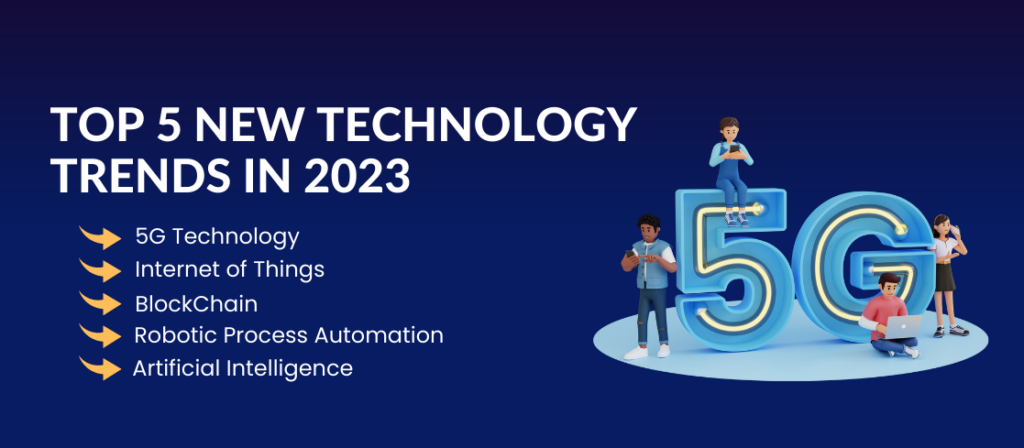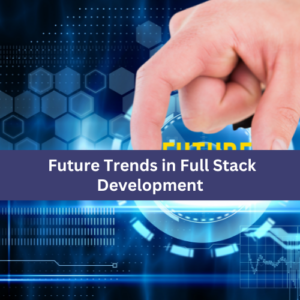Technology today is advancing rapidly, leading to accelerated change and progress. This has been particularly evident with the outbreak of COVID-19, which has caused significant shifts in various industries, including IT. As a result, IT professionals have come to realize that their roles will not remain the same in the contactless world of tomorrow. In the years 2023-24, IT professionals will need to continuously learn, unlearn, and relearn to stay relevant. One notable advancement in the field is the increasing prevalence of artificial intelligence (AI). AI, coupled with natural language processing and machine learning, is poised to revolutionize various aspects of our lives. It has the potential to understand human language better and perform complex tasks more efficiently. Additionally, the advent of 5G technology is expected to bring about significant changes in how we live and work. Given the current global situation, with the majority of the IT population working remotely from home, there is an opportunity to make the most of this time by focusing on emerging technology trends. By familiarizing oneself with these trends, individuals can position themselves for future job opportunities created by these advancements. It is essential to keep a watchful eye on the future and stay updated on the skills that will be in demand to secure a stable job. By doing so, one can prepare for the changing landscape and equip themselves with the necessary knowledge and expertise. Here are the top 5 Technology trends in 2023 given below:

5G Technology- One of the upcoming technology trends after the Internet of Things (IoT) is the emergence of 5G. While 3G and 4G technologies have already provided us with the ability to browse the internet, utilize data-driven services, and enjoy increased bandwidth for streaming on platforms like Spotify and YouTube, 5G services are set to bring about a revolution in our daily lives. This next generation of wireless connectivity is expected to enable advanced technologies such as Augmented Reality (AR) and Virtual Reality (VR), as well as cloud-based gaming services like Google Stadia and NVidia GeForce Now, among others. Moreover, 5G is anticipated to find applications in various sectors including factories, where it can be utilized for improved safety measures and traffic management, as well as in smart grid control and smart retail solutions.

Internet of Things (IoT)- IoT, or the Internet of Things, is an exciting and promising technology trend. It involves the integration of various devices, appliances, and vehicles with WiFi connectivity, enabling them to connect to the Internet and communicate with each other. This connectivity has already had a significant impact on our lives. As consumers, we can remotely control our homes, such as locking our doors or preheating our ovens, and track our fitness using devices like Fitbits. However, the potential of IoT extends beyond personal use. Businesses stand to benefit greatly from this technology as well. IoT enables improved safety, efficiency, and decision-making by collecting and analyzing data. It can facilitate predictive maintenance, accelerate medical care, enhance customer service, and offer numerous other benefits that are yet to be fully realized. Projections indicate that by 2030, around 50 billion IoT devices will be in use worldwide, forming an extensive network of interconnected devices ranging from smartphones to kitchen appliances. The global spending on IoT is also predicted to reach 1.1 trillion U.S. dollars by 2023, with the advent of technologies like 5G driving further market growth. To engage with this thriving technology trend, it is crucial to acquire specific knowledge and skills. These include information security, fundamentals of artificial intelligence (AI) and machine learning, networking, hardware interfacing, data analytics, automation, understanding of embedded systems, and familiarity with device and design principles. By developing expertise in these areas, individuals can position themselves to leverage the opportunities presented by IoT.

BlockChain- Blockchain technology extends beyond its association with cryptocurrencies like Bitcoin and offers security and utility in various other domains. At its core, blockchain is an immutable data structure where information can only be added and not modified or removed, forming a chain of interconnected data blocks. This immutability is what contributes to its robust security. Additionally, blockchain operates on a consensus-driven model, preventing any single entity from controlling the data. It eliminates the need for a trusted third party to validate and oversee transactions. Numerous industries are embracing and implementing blockchain technology, leading to an increased demand for skilled professionals in this field. A blockchain developer specializes in designing and implementing blockchain solutions and architectures. The average annual salary of a blockchain developer is ₹469K. If you find blockchain intriguing and aspire to build a career in this burgeoning technology, now is an opportune time to get started. To enter the blockchain domain, it is essential to gain hands-on experience in programming languages, object-oriented programming (OOP) concepts, flat and relational databases, data structures, web application development, and networking. Enrolling in a blockchain training course can provide you with the necessary knowledge and skills to kickstart your journey in this exciting field.

Robotic Process Automation (RPA)- Robotic Process Automation (RPA) is a technology that, like AI and Machine Learning, is transforming job automation. RPA utilizes software to automate various business processes, such as application interpretation, transaction processing, data management, and even email responses. It aims to replace repetitive tasks that were traditionally performed by humans. While it is estimated by Forrester Research that RPA automation may potentially impact the livelihood of around 230 million knowledge workers, approximately 9 percent of the global workforce, it is also creating new job opportunities and transforming existing roles. According to McKinsey, less than 5 percent of occupations can be fully automated, but around 60 percent can be partially automated. For IT professionals who are keen on staying ahead and understanding the latest technology trends, RPA presents a wealth of career opportunities. These include roles such as RPA developer, project manager, business analyst, solution architect, and consultant. Moreover, these positions often offer competitive salaries, with RPA developers earning over ₹534K per year. This makes RPA a technology trend worth monitoring closely for IT professionals looking to explore promising career paths.

Artificial Intelligence (AI) and Machine Learning- Artificial Intelligence (AI) has garnered significant attention in recent years and continues to be a prominent technology trend. Its impact on various aspects of our lives is still in its early stages, leading to ongoing advancements and innovations. AI has already demonstrated its capabilities in image and speech recognition, navigation apps, personal assistants on smartphones, ride-sharing apps, and more. It also has the potential to analyze interactions, uncover connections and insights, predict service demand in areas like hospitals, aid in resource utilization decisions, and detect evolving patterns of customer behavior in real time, thereby driving revenue and enhancing personalized experiences. The AI market is projected to become a $190 billion industry by 2025, with global spending on cognitive and AI systems surpassing $57 billion in 2023. As AI expands its presence across sectors, it will create numerous job opportunities in fields such as development, programming, testing, support, and maintenance. Additionally, AI-related roles offer some of the highest salaries today, ranging from over $125,000 per year for a machine learning engineer to $145,000 per year for an AI architect. Hence, AI is a crucial technology trend that warrants close attention. Machine Learning, a subset of AI, is also experiencing widespread deployment across industries, resulting in high demand for skilled professionals. Forrester predicts that by 2025, AI, machine learning, and automation will generate 9 percent of new jobs in the United States. These jobs will include positions such as robot monitoring professionals, data scientists, automation specialists, and content curators. Therefore, Machine Learning is another technology trend that should be kept in mind.


